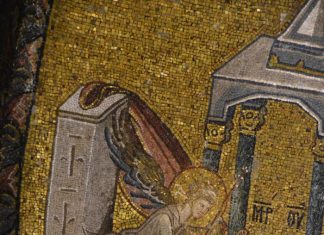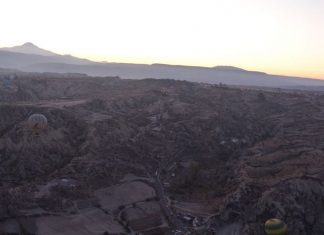Yet to these remaining sufferers, for whom he made this ridiculous remission of taxes, and to all the others, who had many times been invaded by the army of the Medes, and been continually plundered by the Huns and barbarous Saracens in the East, and to those Romans who had met an equal fate daily from the barbarians in Europe, this Emperor straightway became a more bitter foe than all the barbarians put together. For as soon as the enemy had retreated, the landowners immediately were overwhelmed by new requisitions, imposts and levies.
What these were I will now explain. Those who owned land were compelled to feed the Roman army, according to a special assessment determined by the actual emergency but arbitrarily fixed by law.
And if sufficient provisions for the soldiers and horses were not to be found on their estates, these unfortunates had to go out and buy them at an excessive price, wherever they could, even if they had to transport them from a distant country to the place where the army was quartered , and then distribute them to the army officials not at a legal price, but at the whim of the commanders. This requisition, called co-operative buying, took the heart out of the landowners.
For it made their annual taxes easily ten times what they had been, as they had not only to feed the army, but often to transport grain from Constantinople. Barsyames was not the only one who dared this outrage, for the Cappadocian before him had done the same, and Barsyames’s successors after him. And this is what co-operative buying meant.
Suddenly attacked the landowners
The “impost” was an unexpected ruin which suddenly attacked the landowners, pulling up their hope of livelihood by the roots. In the case of estates that had run down and been deserted, whose owners and farmer tenants had either perished or left the country, on account of their misfortunes, and disappeared, a ruthless tax was still laid on those who had already lost all. This was called the impost, levied frequently during this time.
The nature of the third levy was briefly as follows: Many losses, especially at this time, were suffered by the cities, whose causes and extents I refrain from describing now, or the tale would be endless. These losses the landowners had to repair, by special assessment on each individual; and their troubles did not even stop there. The pestilence, which had attacked the inhabited world, did not spare the Roman Empire. Most of its farmers had perished of it, so that their lands were deserted; nevertheless Justinian did not exempt the owners of these properties.
Read More about Squire Petrick`s Lady part 6








